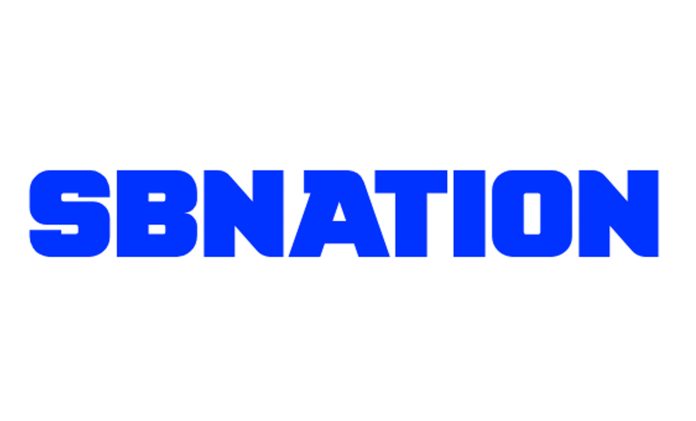
Who won the Matthew Stafford trade: the Detroit Lions or the Los Angeles Rams?
It’s been five years, so it’s time we start answering some questions. Is it even called the “Matthew Stafford trade”? Is it actually the “Matthew Stafford for Jared Goff trade”? The “Matthew Stafford for Jameson Williams/Sam Laporta/Jahmyr Gibbs/Jared Goff trade”? The “Super Bowl LVI for ‘an actually good roster’ trade”?
I’m going to stay with the Matthew Stafford trade, because the now-Super Bowl-winning quarterback was and remains the marquee asset of the deal. Along with all that other stuff — two first-round picks (Williams and Gibbs), a second (Laporta), and supplemented by the Lions’ own picks during those drafts (Aidan Hutchinson, Jack Campbell, Brian Branch… wow) — this is looking like one of the great win-wins in sports history. The Rams got their win-now Super Bowl, the Lions built for the future. So the answer to “who won the trade” is… everyone, right?
Wrong. After much careful consideration, I am ready to declare that the Lions got smoked in that trade. Embarrassed. Exposed. Utterly decimated. Despite the Lions acquiring five-ish franchise players, the Rams made out like bandits and are the unquestioned winners of the deal. Here’s why.
(Disclaimer: sarcastic hyperbole aside, hindsight is 20/20, but that’s the kind of vision we need to evaluate trades with. Every deal is a risk in real time, and I DO NOT FAULT THE LIONS FOR MAKING THE TRADE AT THE TIME. It made sense, Stafford had been there for over a decade and they both needed to move on, they would do it again. That’s not what we’re talking about. When evaluating who won and lost a trade you have to use your 20/20 hindsight glasses — winners and losers aren’t determined in real time; they’re determined right here, right now.)
It was a classic win-now versus rebuild construction. Picks for a star, hoping that the picks can turn into multiple stars. Be good now or be better later. And it all worked out great for four-and-a-half years. But now, in the big 2025, we are faced with a startling reality: the Los Angeles Rams are unquestionably better than the Detroit Lions, again. They are far more likely to win the Super Bowl, have a more efficient offense and a plainly better defense. In 2021, they were supposed to “win now” and the Lions “win later.” Well, now it’s later, and who’s winning?
What went wrong was a fundamental mismatch in theories of team building. Is it quarterback first, team later, or build up the bones before finding the quarterback later — like the Rams did with Stafford?
I don’t think the order really matters, so long as the team always acknowledges that finding an elite QB is of paramount importance. The Lions traded Stafford, who has no such roster in Detroit, and used the assets to build such a roster. The Rams had such a roster, and traded for Stafford to complete the project.
Here’s the problem: I was under the impression that trading Stafford would start the rebuild, which would include finding an elite quarterback not named Jared Goff, who is not an elite quarterback. Instead, the Lions got too good too fast and couldn’t justify replacing Goff, leaving them stuck with a limited signal caller around a death star of options. In the two biggest games in Lions franchise history, the 2023 NFC Championship and 2024 NFC Divisional Round, Goff was not-good and terrible respectively. The difference in those games was the quality of the quarterback, and the Lions will basically have a disadvantage in that matchup no matter who they play.
That doesn’t mean they can’t occasionally beat a good QB — they beat Matthew Stafford and the Rams in the 2023 Wild Card round. But you can’t expect to do that consistently if you make no effort to replace the man under center. And the Lions have really made no effort in that department, drafting a single quarterback, Hendon Hooker, in the 3rd Round of the 2023 draft, who’s no longer on the team.
Once again, I do not fault the Lions for trading Stafford for a boatload of assets. Their present predicament — moving further and further from contention despite being built for the future — comes from a refusal to use any of those assets to acquire a replacement for Stafford that could compete with him. Today, successful NFL team building can be summarized with the words “find the QB first, figure everything else out second.”
The league may not totally agree. There are lots of Goff-Lions-esque experiments currently cooking, with mistake-prone, physically limited QBs captaining big-time rosters. From Sam Darnold’s Seahawks to Daniel Jones’ Colts, these are currently successful teams that may find themselves lacking under center when it matters most. The ultimate counterpoint to what I’m preaching is Nick Foles, who won Super Bowl LII over Tom-freaking-Brady with a great supporting cast.
But Foles might be the exception that proves the rule: his Linsanity run through the postseason cannot be explained by science, and thus probably shouldn’t be used to model rational team building. For the Lions and Rams, the 2021 trade made perfect sense. The devil was in the after-the-fact details, which the Rams have succeeded in, and the Lions increasingly have not — I would be shocked if the Lions won the Super Bowl with Goff ever, and would not be remotely surprised if the Rams won another with Stafford this year. With our hindsight glasses on, we can confidently say: the Rams won the trade. QED.




